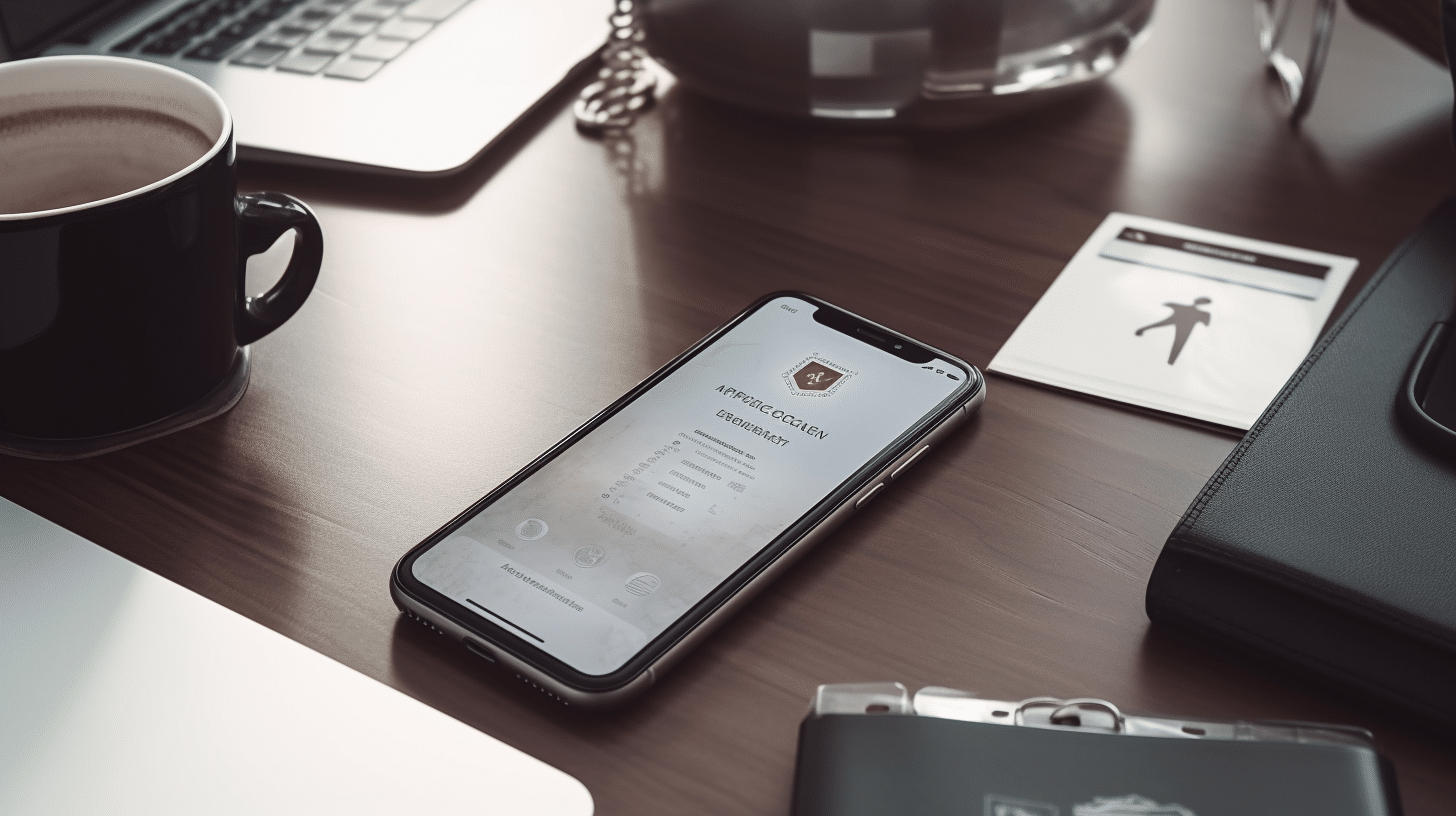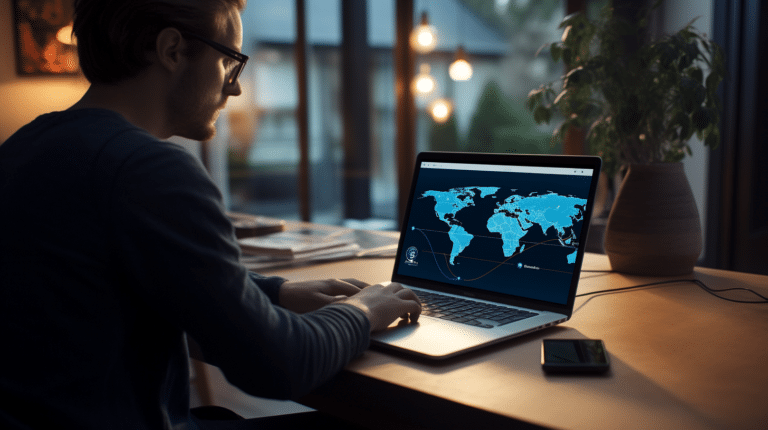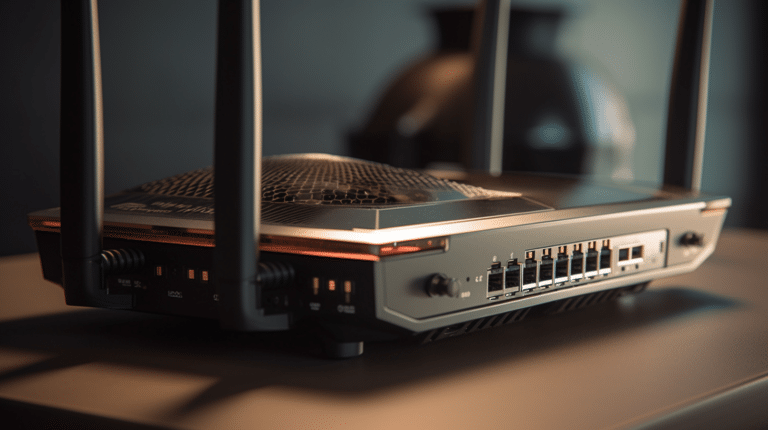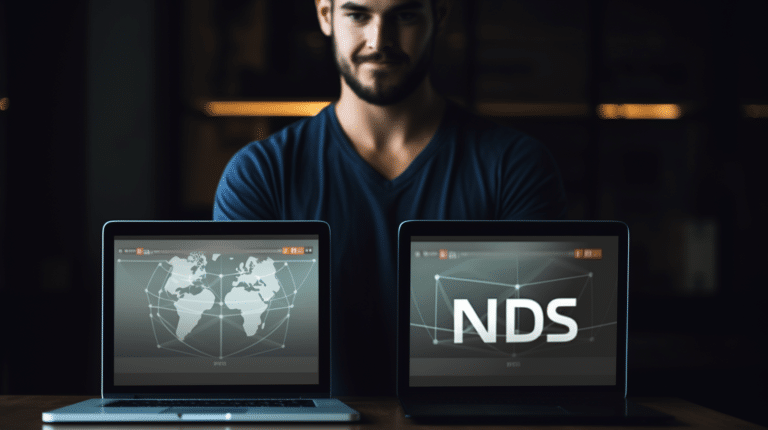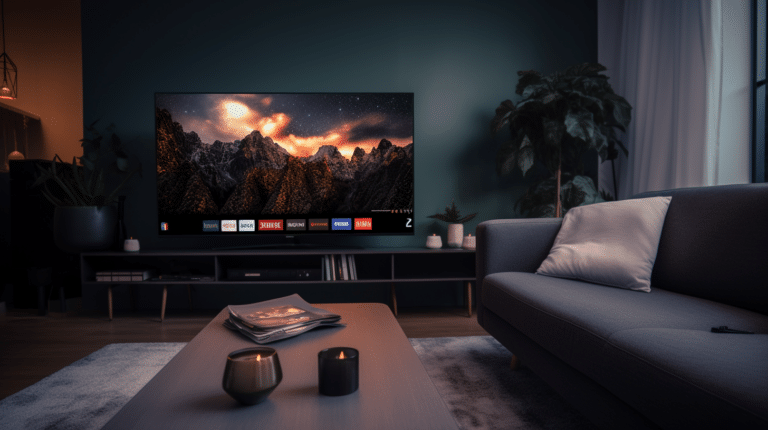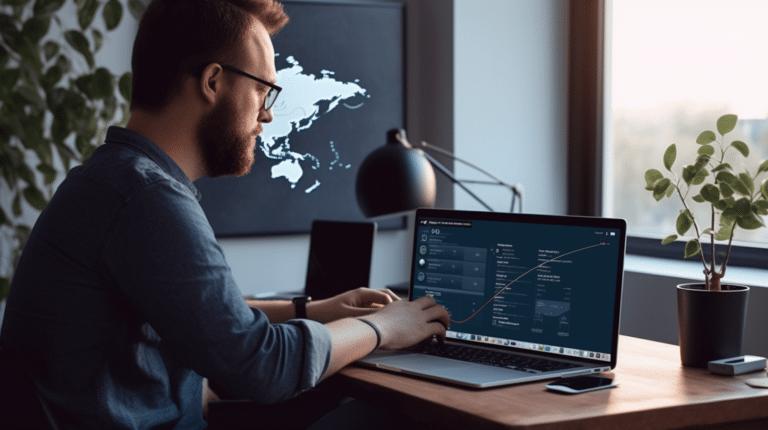In the era of smartphones and mobile devices, securing data has become an essential part of our lives. iPhones are a popular choice among users worldwide, and mobile security is a primary concern for many. Virtual Private Networks, or VPNs, provide an added layer of security when browsing the internet on your device. By establishing an encrypted connection, VPNs help protect your online privacy and ensure safe data transfer.
Using a VPN on your iPhone is advantageous in numerous ways. It allows you to access blocked content, protects your data from hackers and snoopers, and provides a safe way to connect to public WiFi networks. As VPN usage on iPhones becomes increasingly popular, understanding how these systems work and selecting the best VPN for your device is crucial to make the most of this technology.
Key Takeaways
- VPNs provide additional security and privacy for iPhone users while browsing the internet.
- Choosing the best VPN for your iPhone depends on your specific requirements and usage.
- There are various factors to consider when using a VPN on an iPhone, including setup, cost, and potential drawbacks.
Understanding VPNs on iPhone
A Virtual Private Network (VPN) is a technology that provides a secure connection between your iPhone and the internet. It helps protect your privacy and data from potential threats by encrypting your data and masking your IP address. Whether you are connected to a public Wi-Fi network or exploring an unsecured network, using a VPN on your iPhone allows you to maintain the same level of security as if you were browsing from home or work.
iPhone has native support for VPNs, making it easy for users to configure and manage VPN connections. You can access the VPN settings by heading to the “Settings” app on your iPhone, then selecting “General” and “VPN.” From there, you can add a VPN configuration manually or use a third-party provider that offers an app. Many VPN service providers offer iOS apps specifically tailored for the iPhone’s functionality.
When choosing a VPN service for your iPhone, it’s crucial to consider factors such as security, privacy, performance, and ease of use. Reliable VPN services will use strong encryption protocols like IKEv2 or OpenVPN to secure your data. Additionally, they should have a clear privacy policy that ensures they do not log your internet activity or personal information. Speed and performance are also essential, as this will affect your overall browsing experience.
In conclusion, understanding and utilizing VPN services on your iPhone provides extra layers of security and privacy while browsing the web. It protects you from potential threats, secures your data and communication, and offers a more private browsing experience.
Reasons to Use a VPN on iPhone
Enhanced Security and Privacy
Using a VPN on your iPhone provides an extra layer of security and privacy. A VPN encrypts your internet connection, making it difficult for hackers and other third parties to intercept your data. This protects sensitive information, such as login credentials and financial details, from being accessed by unauthorized individuals. Additionally, a VPN masks your IP address, which helps protect your online identity and makes it difficult for advertisers or other entities to track your online activities.
Accessing Geo-Restricted Content
One of the major benefits of using a VPN on your iPhone is the ability to access geo-restricted content. This means you can enjoy streaming services, websites, and apps that are not available in your location by connecting to a VPN server in a different country. For example, if you’re travelling outside your home country and want to access a local streaming service, a VPN allows you to appear as though you’re still in your home country, giving you unrestricted access to your favourite content.
Preventing ISP Throttling
Internet Service Providers (ISPs) may sometimes throttle or slow down your internet connection when they detect heavy usage, such as streaming or downloading large files. By using a VPN on your iPhone, you can prevent ISP throttling, as the VPN encrypts your traffic, making it difficult for your ISP to identify your online activities. This prevents them from tracking and throttling your connection based on your usage patterns, ensuring consistent internet speeds for all your online tasks.
Selecting the Best iPhone VPN
Reliability and Features
When choosing the best VPN for your iPhone, it’s important to consider the reliability and features the service offers. A reliable VPN should provide a stable and secure connection with minimal downtime. Many VPNs offer advanced features such as WireGuard and OpenVPN, as well as built-in security measures to protect your data and privacy while connected to public Wi-Fi networks. High-quality VPNs for iPhone may also support additional protocols for improved performance and security.
No-Logs Policy and Privacy Measures
A crucial component of a trustworthy VPN is a strong no-logs policy. This ensures that the VPN provider will not maintain any records of your online activity or personal information, keeping it safe from prying eyes and third parties. Privacy measures implemented by the VPN provider, such as strong encryption techniques and secure servers, play a significant role in safeguarding your data and maintaining your anonymity online.
Ease of Use and Compatibility
For users who may not be as tech-savvy, ease of use is another essential aspect to consider while selecting the best VPN for your iPhone. A well-designed VPN app should have a user-friendly interface that allows you to easily access and configure your VPN connection. Compatibility with your iPhone and iOS version is also crucial, as not all VPN services offer dedicated apps for both Apple and Android devices. Finding a VPN that is both easy to use and compatible with your phone will enhance your overall experience and increase the likelihood of consistent use, helping you maintain your privacy and security online.
Top iPhone VPN Providers
NordVPN
NordVPN is a well-known VPN provider for iPhone users with a reputation for strong security features. They offer a large network of over 5,000 servers across 60+ countries, providing users with numerous options for establishing fast and secure connections. NordVPN uses industry-standard AES-256 encryption to protect your data, ensuring that your personal information remains private while browsing the internet. The iOS app is user-friendly, making it easy for iPhone users to get started with NordVPN.
Surfshark
Surfshark is another popular VPN choice for iPhone users looking for a balance of performance and security. They boast a global network of more than 3,200 servers in over 65 countries, providing reliable and fast connections. Surfshark uses robust AES-256 encryption, just like NordVPN, to safeguard your online data. Additionally, their iOS app is straightforward and easy to navigate, making Surfshark a solid choice for those new to VPNs.
ExpressVPN
ExpressVPN is renowned for its speed and reliability, making it an excellent option for iPhone users in need of a high-performance VPN. With a server count of over 3,000 in more than 90 countries, users have access to a broad array of connection options. ExpressVPN employs AES-256 encryption to ensure a secure browsing experience. Their iOS app is intuitive and user-friendly, which makes it simple to establish a secure connection on your iPhone.
CyberGhost VPN
CyberGhost VPN provides iPhone users with an easy-to-use VPN solution featuring more than 7,000 servers in 90 countries. This provider is known for its user-centric approach, offering a simple and intuitive iOS app that simplifies the VPN experience. CyberGhost VPN uses AES-256 encryption like the other top providers, keeping your information protected while using their service. Their extensive server network allows iPhone users to have consistent and fast connections globally.
Setting Up a VPN on iPhone
A Virtual Private Network (VPN) provides an added layer of security and privacy while browsing the internet on your iPhone. It encrypts your internet traffic, making it difficult for hackers and third parties to intercept your data. There are several VPN protocols available, including IPsec, which is a popular choice for iPhone users due to its compatibility with iOS. Here’s how to set up a VPN on your iPhone:
- Choose a VPN provider: Many VPN providers offer dedicated apps for iOS, allowing for easy setup and configuration. Research different providers and choose one that best fits your needs. Some popular options include ExpressVPN, NordVPN, and CyberGhost. Once you’ve chosen a provider, download the app from the App Store and follow the instructions to set up your account.
- Access VPN settings on your iPhone: If you prefer to use the built-in VPN settings in iOS, go to Settings > General > VPN. Tap on “Add VPN Configuration” and select the type of VPN you’d like to set up, such as IPsec.
- Configure VPN settings: Enter the required information for the chosen VPN protocol. This may include server addresses, account information, and authentication settings. You can usually find these details in your VPN provider’s documentation.
- Enable the VPN connection: Once your VPN configuration is set up, toggle the status switch to “ON.” Your iPhone will now connect to the VPN server, and you’ll see a VPN icon appear in the status bar at the top of your screen. This indicates that your internet connection is secure and private.
- Manage your VPN connection: You can easily turn your VPN connection on or off by going back to Settings > General > VPN. Use this to switch between VPN profiles or disable the connection when necessary.
Remember to always use a professional and trustworthy VPN provider to ensure the security and privacy of your iPhone’s internet connection. By following these steps, you can enjoy an encrypted and secure browsing experience on your iPhone using a VPN.
Potential Drawbacks of VPNs on iPhone
Latency and Connection Speed
Using a VPN on your iPhone can introduce latency and potentially reduce connection speeds. This happens because your internet traffic is routed through the VPN server, which may be geographically distant from your location. As a result, you may experience delays and slower browsing when using a VPN on your iPhone. Moreover, high-quality VPN services typically use encryption to secure your data, which can further impact performance. This may be particularly noticeable while streaming videos or playing online games, where low latency is crucial for a smooth experience.
Limited Functionality on Free VPNs
Many users turn to free VPNs for their iPhones, but these services often come with limitations. Free VPNs usually have restrictions on bandwidth, data usage, or server availability. This can lead to a subpar experience, as your browsing and streaming activities may be interrupted or slowed down by these limitations.
In addition to performance issues, free VPNs may also lack the level of security and privacy provided by paid alternatives. Some free services may log your data or sell your browsing history to third parties, negating the privacy benefits associated with using a VPN in the first place. Moreover, free VPNs can potentially contain malware or intrusive advertisements, putting your iPhone and personal data at risk.
In conclusion, while using a VPN on your iPhone has its merits, it’s important to be aware of the potential drawbacks. Issues like latency, connection speeds, and the limitations of free VPNs should be considered when selecting a VPN for your iPhone. Opting for a reputable, paid VPN service with a transparent privacy policy and strong encryption standards can help you mitigate these drawbacks and fully leverage the advantages of using a VPN on your iPhone.
Frequently Asked Questions
What is the purpose of a VPN on an iPhone?
A VPN (Virtual Private Network) on an iPhone is designed to provide secure and private access to the internet by encrypting your connection and masking your IP address. This helps protect your privacy, secure your data from hackers and eavesdroppers, and allows you to bypass geographical restrictions on content.
How can I enable or disable VPN on my iPhone?
To enable or disable VPN on your iPhone, go to Settings > VPN. Here, you can toggle the VPN on or off. If you have multiple VPN configurations, select the one you’d like to use before turning it on. To disable VPN, simply toggle it off.
Does iPhone come with a built-in VPN?
No, iPhone does not come with a built-in VPN. However, it offers support for various VPN protocols such as IKEv2, IPsec, and L2TP, which can be configured in the VPN settings. To use a VPN on your iPhone, you will need to download a reputable VPN provider’s app from the App Store or manually configure the VPN settings on your device.
Which VPN is best for iPhone users?
There are numerous VPNs available for iPhone users with different features and pricing options. Some highly-rated VPN services include ExpressVPN, NordVPN, Surfshark, and CyberGhost. It is essential to choose a reputable VPN provider that prioritizes security, privacy, speed, and offers a wide array of server locations.
How do I configure IKEv2 VPN on my iPhone?
To configure an IKEv2 VPN on your iPhone, follow these steps:
- Go to Settings > General > VPN.
- Tap “Add VPN Configuration.”
- Select “IKEv2” as the type.
- Enter the required information (server address, remote ID, etc.) provided by your VPN service.
- Save the configuration by tapping “Done.”
- Turn on VPN by going to Settings > VPN and toggling it on.
IKEv2 VPN credentials are typically provided by your VPN service, so refer to their documentation or customer support for specific configuration details.
Can I set up a free VPN on my iPad?
Yes, you can set up a free VPN on your iPad by downloading a free VPN app from the App Store or manually configuring the VPN settings using the provided configuration details. However, free VPNs may have limitations in terms of server locations, speed, and data usage. Additionally, some free VPN services may not offer the same level of security and privacy as premium VPN services. It is crucial to carefully research and choose a trustworthy free VPN provider.
Final Thoughts
With a VPN, iPhone users can enhance their online security and ensure privacy while browsing the internet. This is especially relevant when using public Wi-Fi networks, which are often vulnerable to hacking attempts from cybercriminals. By encrypting their internet connection with a VPN, iPhone users can thwart these attempts and maintain their privacy.
In addition to privacy concerns, VPNs are vital in bypassing geo-restrictions imposed by certain countries or industries. For instance, users can access content from streaming services that may not be available in their region through a VPN. This gives them greater freedom and flexibility when consuming online content.
Moreover, VPNs can offer protection against certain government surveillance programs, as the encryption provided by VPNs makes it harder for agencies to track user activity. In a time where privacy breaches and government overreach are increasingly prevalent, this added layer of security provided by VPNs is essential.
In summary, using a VPN on an iPhone is an effective way to enhance one’s online security and privacy. From tackling cybercriminals to bypassing geo-restrictions and shielding against government surveillance, iPhone users can benefit significantly from utilizing a VPN. As the need for internet freedom and protection continues to grow, so does the importance of VPNs for iPhone users.
